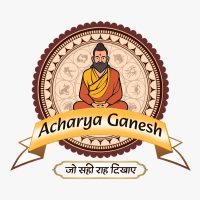Vedic astrology, also known as Jyotish, is an ancient system that has been guiding individuals for centuries in understanding their destinies and navigating life’s journey. Rooted in the ancient wisdom of the Vedas, this profound science goes beyond mere horoscope readings to offer a comprehensive view of one’s past, present, and future. In this article, we explore the fascinating realm of predictive Vedic astrology, delving into its principles, methodologies, and the insights it provides for anticipating life events.
Foundations of Predictive Vedic Astrology
At the core of Vedic astrology lies the belief that celestial bodies, their positions, and their interactions influence human lives. The natal chart, or horoscope, is a personalized map of the sky at the time of an individual’s birth. It comprises twelve houses, each representing different aspects of life, and nine planets, including the Sun and Moon.
To predict future events, Vedic astrologers employ various techniques, with emphasis on planetary transits, dasas (planetary periods), and yogas (combinations). Understanding the movements and positions of planets in relation to the natal chart enables astrologers to forecast significant life events, opportunities, and challenges.
Planetary Transits: A Celestial Dance
One key aspect of predictive Vedic astrology is the analysis of planetary transits, where planets move through the zodiac and form alignments with natal positions. Each transit can trigger specific events or themes based on the nature of the planets involved and the houses they influence. For example, the transit of Jupiter through the career house may signify professional growth, while Saturn’s transit through the relationship sector may bring about challenges or restructuring in partnerships.
Dasa System: Unraveling Planetary Periods
The dasa system is another vital tool in predictive Vedic astrology. It divides an individual’s life into planetary periods, each ruled by a specific planet. The dasa sequence is determined by the position of the Moon at birth, and during each period, the influence of the ruling planet takes center stage. By analyzing the dasa periods, astrologers gain insights into the unfolding chapters of an individual’s life, predicting major events and themes.
Yogas: Cosmic Combinations
In predictive Vedic astrology, yogas refer to specific combinations of planets in a chart that indicate certain characteristics or outcomes. There are auspicious yogas that signify prosperity, fame, and spiritual growth, as well as inauspicious yogas that may suggest challenges or obstacles. Analyzing these cosmic combinations allows astrologers to offer more nuanced predictions tailored to an individual’s unique chart.
Limitations and Ethical Considerations
While predictive Vedic astrology offers valuable insights, it’s important to approach it with a discerning mind. Astrological guidance should complement rather than replace rational decision-making. Ethical astrologers emphasize the empowerment of individuals rather than fostering dependency on predictions. It’s crucial to understand that astrology provides a potential roadmap, not a predetermined destiny.
Conclusion
Predictive Vedic astrology stands as a timeless guide, helping individuals navigate the currents of their lives with a deeper understanding of the cosmic influences at play. By unraveling the mysteries of planetary transits, dasas, and yogas, astrologers provide a valuable service, offering insights that empower individuals to make informed choices and embrace their destinies with awareness and resilience. As we continue to explore the intersection of ancient wisdom and modern life, predictive Vedic astrology remains a fascinating and enriching tool for self-discovery and personal growth.










Read 0 comments and reply